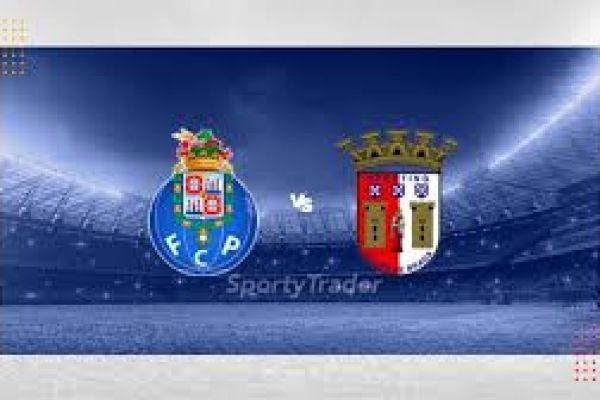The Portuguese Primeira Liga is traditionally dominated by the Três Grandes (Big Three): Benfica, Sporting CP, and FC Porto. However, over the past two decades, a fourth power has consistently emerged to challenge this status quo: Sporting Clube de Braga. The fixture between FC Porto and Braga is far more than just a contest for three points; it represents a compelling, high-stakes battle between established pedigree and modern, relentless ambition, serving as a crucial barometer for the domestic title race and European qualification.
The rivalry is fundamentally defined by this contrast in history. FC Porto, the perennial champions and two-time European Cup winners, approach the match with the weight of expectation inherent in their dominant culture. The fixture for them is not merely a win, but a necessity to solidify their position alongside their Lisbon rivals. Braga, conversely, carry the moniker of the ‘Arsenalistas’ and have built their success meticulously since the early 2000s, transforming into a perennial presence in the European spots. While they seldom challenge for the league title, their ability to consistently disrupt the order and often defeat one of the Big Three makes them the ultimate kingmakers. This dynamic injects a unique psychological pressure into the match: Porto risk not only losing points but also suffering a blow to their authority, while Braga stand to gain immense confidence and domestic credibility with every victory.
Tactically, the encounter usually devolves into a fascinating duel of opposing philosophies. Under managers like Sérgio Conceição, Porto's style is often characterized by overwhelming intensity, a suffocating high press, and a strong, physical presence, particularly in midfield and on the wings. Their game plan typically involves leveraging the noise of the Estádio do Dragão and employing quick, vertical transitions to exploit spaces left by aggressive opposing fullbacks. They seek to intimidate, control, and wear down their opponent through sheer force.
Braga, by contrast, frequently employ a more pragmatic yet flexible approach. They are not afraid to sit deeper, absorb pressure, and utilize their technical midfielders and pacy wingers for dynamic counter-attacks. When playing at their home ground, the unique Estádio Municipal de Braga (carved into a rock face), they often exhibit greater control, using shorter, intricate passing sequences to bypass Porto’s high press. The central battleground is always the midfield, where Porto’s physicality meets Braga’s technical precision. Whichever side wins the duels and dictates the tempo in the middle of the park usually gains the upper hand in the overall contest. Key players often emerge in these moments, with creative attackers from both sides needing to find solutions against two of the most disciplined defenses in the league.
The stakes attached to this fixture extend beyond pride, carrying significant financial and European implications. For Porto, a win is non-negotiable for the title hunt, as dropping points to the ‘fourth force’ can prove fatal in the tightly contested race against Benfica and Sporting. For Braga, the stakes are equally monumental. They are constantly fighting to secure the lucrative third-place finish that grants automatic access to the UEFA Champions League qualifying rounds. A victory against Porto is frequently the difference between an ultimately successful European season and an anticlimactic one. This pressure cooker environment ensures that every tackle, set piece, and managerial substitution is scrutinized, often resulting in dramatic and explosive matches that are typically high-scoring affairs.
In conclusion, the clash between FC Porto and Sporting Braga stands as a defining match-up in the modern Portuguese game. It is a spectacle built on historical rivalry, yet perpetually renewed by contemporary ambition. Porto’s quest to maintain their legacy clashes with Braga's consistent, well-executed attempt to breach the traditional elite structure. The resulting tactical battle—defined by Porto’s force versus Braga’s finesse—makes the fixture essential viewing and an ongoing narrative that continues to ensure the high standard and competitiveness of the Primeira Liga.








